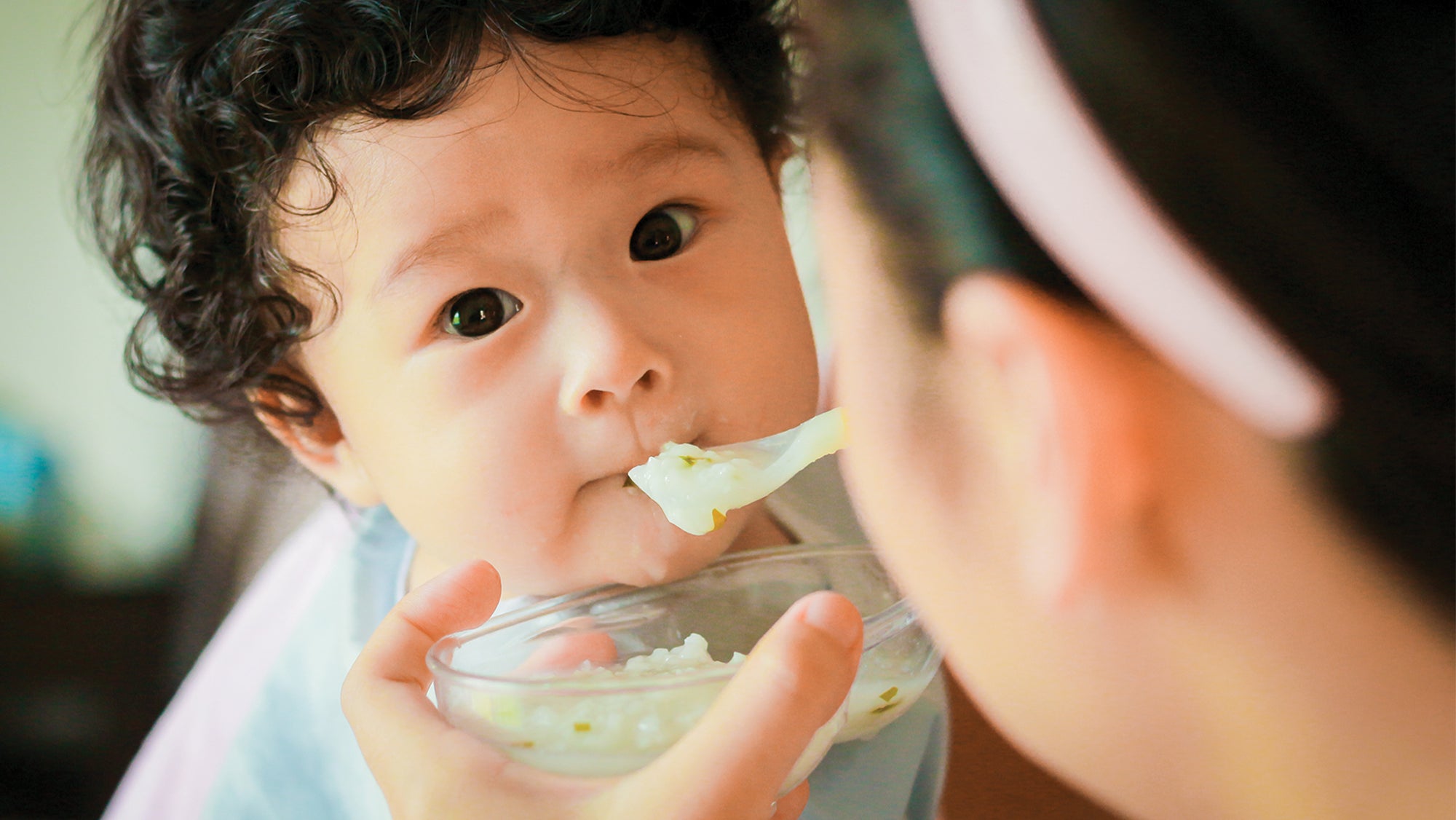Introducing Foods Early May Prevent Allergies in Babies

BNB Early Timing
New research suggests there may be no reason to – in fact, introducing specific allergenic foods early on may even have a protective effect against allergies.
A recent meta-analysis published in the Journal of the American Medical Association (JAMA) looked at data from 146 studies, eight of which involved about 5,300 infants and focused on peanut and egg allergies. Researchers found that the early timing of introducing peanuts and eggs – the two most common food allergens – is associated with a lower risk of developing an allergy later.
They also found that feeding eggs to infants between four and six months of age resulted in a 40% reduced rate of egg allergy while giving peanuts to infants between four and 11 months showed a 70% reduction compared with children who first ate the foods later.
See also What’s the Difference Between Food Allergies, Intolerances and Sensitivities?
This evidence seems to further dispel past recommendations to shun allergenic foods in the first year. Wondering how much to feed?
“Infants who are allergic to a food typically need about 100 to 300 milligrams of the food protein to trigger a reaction – that is around 1/8 to 1/4 teaspoon of smooth peanut butter (mixed with cooled boiled water or fruit purée), or 1/4 to 1/2 teaspoon of egg,” says Robert Boyle, PhD, a Clinical Senior Lecturer in Pediatric Allergy at Imperial College London. “Start with a little less than this amount in case they already have an allergy to the food.”
Doyle notes that peanut or egg allergy at three months is rare, but many infants have an egg or peanut allergy by six months, so best to start before then. Study authors still caution against giving eggs or peanuts to babies with other known food allergies or allergic conditions such as eczema, in which case you should consult with your baby’s doctor for guidance.